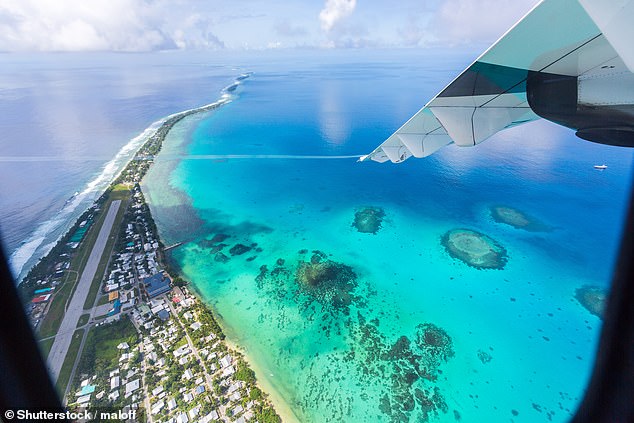
Hidden Gem or Future Mystery: Would You Visit This Enigmatic Country Before Time Runs Out?
Paradise in Peril: Tuvalu’s Fight Against Rising Tides
[Image: A serene beach in Tuvalu with crystal-clear waters, captioned: “Tuvalu’s idyllic shores face an existential threat from climate change.”]
Dreaming of escaping to a remote island paradise? Tuvalu, a tranquil Pacific nation of 10,000 people, offers a unique haven—no army, no prisons, and a close-knit community where “everyone feels like family.” But this peaceful archipelago, located 1,000 km north of Fiji, could vanish within 50 years due to rising sea levels.
A Hidden Gem Few Visit
Named the world’s least-visited country by the UN in 2023, Tuvalu sees just 3,700 tourists annually. Its isolation—requiring three weekly flights from Fiji and no direct international routes—keeps visitor numbers low. Comprising nine islands spanning 10 square miles (smaller than Manhattan), the nation’s lush atolls and coral reefs remain pristine.
[Image: Aerial view of Funafuti Atoll, captioned: “Tuvalu’s capital, Funafuti, is one of Earth’s most secluded destinations.”]
Adventurous travelers praise Tuvalu’s untouched beauty. A TikTok visitor described the capital, Funafuti, as “peaceful, with everyone knowing one another.” Yet, this serenity masks a looming crisis.
Climate Crisis on the Horizon
Tuvalu’s highest point is just 4 meters above sea level, leaving it vulnerable to erosion and saltwater intrusion. In 2022, Foreign Minister Simon Kofe addressed the UN climate summit knee-deep in the ocean—a stark warning of submersion. Scientists predict the islands could be uninhabitable by 2070.
[Image: Simon Kofe delivering a speech in thigh-high water, captioned: “Tuvalu’s 2022 UN speech highlighted rising seas’ existential threat.”]
Australia’s Lifeline—and Tensions
In 2023, Australia pledged a landmark pact offering Tuvaluans residency and climate asylum. Prime Minister Anthony Albanese vowed support against disasters and security threats. However, Tuvalu’s leaders soon criticized Australia—the world’s second-largest fossil fuel exporter—for contributing to the crisis.
[Image: Albanese shaking hands with Tuvalu’s former PM Kausea Natano, captioned: “2023 pact offers hope but stirs climate policy disputes.”]
A 2024 report by Tuvalu’s government condemned Australia, Canada, and the UK for “disproportionate” fossil fuel extraction. “Wealthy nations must lead in emissions cuts,” urged Home Affairs Minister Maina Talia, calling unchecked fuel projects a “death sentence” for sinking states.
A Call to Action
Tuvalu’s plight underscores the inequality of climate impacts. As PM Feleti Teo stresses, nations benefiting most from fossil fuels “are morally obliged” to phase them out. While Tuvalu fights for survival, its story serves as a global wake-up call.
[Image: Children playing on a Tuvaluan shoreline, captioned: “Future generations face an uncertain fate as sea levels rise.”]
Visiting Tuvalu
For now, those who endure the journey find a paradise of warm hospitality, vibrant culture, and untouched nature. But time is ticking—both for Tuvalu and global climate action.
Word count: ~600


